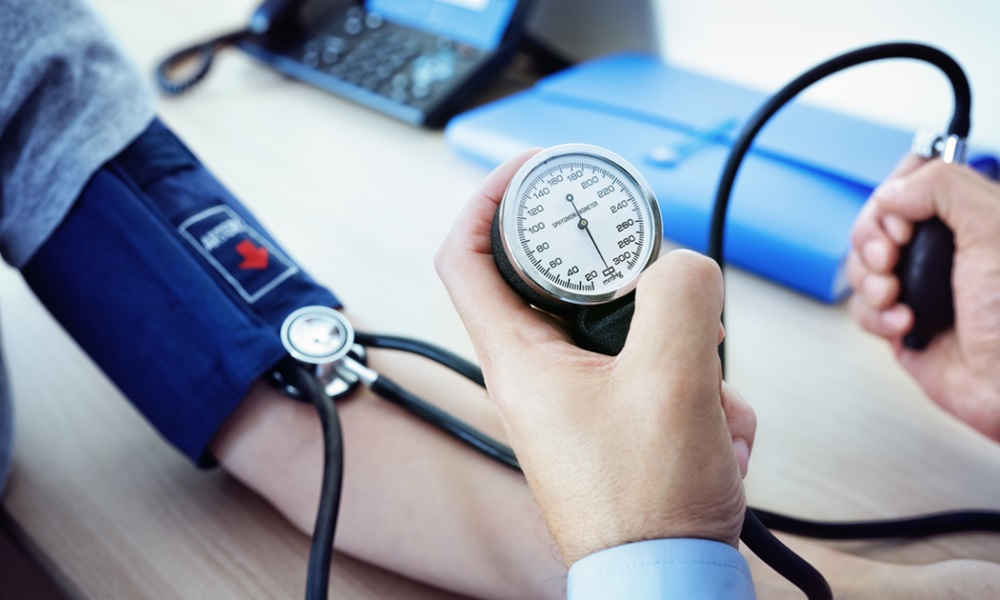
The Influence of Lifestyle on the Development of Hypertension
Hypertension, commonly known as high blood pressure, is a significant health concern worldwide. It is a chronic condition characterized by elevated blood pressure levels, which can lead to serious complications such as heart disease, stroke, and kidney problems. While genetics and other factors play a role in the development of hypertension, lifestyle choices also have a substantial influence. In this blog post, we will explore the impact of lifestyle on the development of hypertension and discuss key strategies for prevention and management.
The Connection Between Lifestyle and Hypertension:
- Diet: The food we consume has a direct impact on our blood pressure levels. A diet high in sodium, saturated fats, and processed foods can contribute to hypertension. Conversely, adopting a diet rich in fruits, vegetables, whole grains, lean proteins, and low-fat dairy products can help lower blood pressure.
- Physical Activity: Regular physical activity is essential for maintaining overall health and managing blood pressure. Engaging in aerobic exercises, such as brisk walking, cycling, or swimming, for at least 150 minutes per week can help reduce blood pressure and improve cardiovascular fitness.
- Weight Management: Obesity and excess weight are significant risk factors for hypertension. Losing weight through a combination of a healthy diet and regular exercise can have a positive impact on blood pressure levels and overall cardiovascular health.
- Alcohol Consumption: Excessive alcohol consumption can lead to an increase in blood pressure. Limiting alcohol intake to moderate levels (up to one drink per day for women and up to two drinks per day for men) is recommended to help prevent hypertension.
- Tobacco Use: Smoking and tobacco use contribute to the development and progression of hypertension. Nicotine and other chemicals in tobacco products can narrow blood vessels, leading to elevated blood pressure. Quitting smoking and avoiding exposure to secondhand smoke are crucial steps in managing hypertension.
- Stress Management: Chronic stress can raise blood pressure levels. Engaging in stress-reducing activities such as meditation, deep breathing exercises, yoga, or engaging in hobbies can help manage stress and potentially lower blood pressure.
Prevention and Management Strategies:
- Adopting a Healthy Lifestyle: Making positive changes in diet, increasing physical activity, maintaining a healthy weight, and avoiding tobacco and excessive alcohol consumption are fundamental in preventing hypertension.
- Regular Blood Pressure Monitoring: Regular blood pressure checks are essential for early detection and management of hypertension. This can be done at home with a home blood pressure monitor or through regular check-ups with a healthcare professional.
- Medication and Treatment: In some cases, lifestyle modifications alone may not be sufficient to manage hypertension. Medications, prescribed by a healthcare professional, may be necessary to control blood pressure and reduce the risk of complications. It is important to follow medical advice and take medications as prescribed.
- Ongoing Healthcare and Support: Regular visits to healthcare professionals, such as primary care physicians or hypertension specialists, are vital for monitoring blood pressure, adjusting medications if needed, and receiving guidance on lifestyle modifications.
Conclusion:
While genetics and other factors contribute to the development of hypertension, lifestyle choices play a significant role. Adopting a healthy lifestyle, including a balanced diet, regular physical activity, weight management, avoiding tobacco and excessive alcohol consumption, and managing stress, can help prevent and manage hypertension effectively. By prioritizing these lifestyle factors and working closely with healthcare professionals, individuals can take control of their blood pressure and reduce the risk of hypertension-related complications, leading to a healthier and more fulfilling life.
